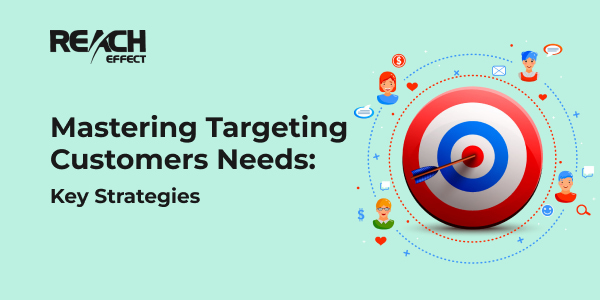Perfecting the mastery of honing in on clients’ requirements is essential for achieving enduring success in the biz arena. Understanding and fulfilling their requirements not only fosters brand loyalty. It also drives profitability. Critical plans in this pursuit involve comprehensive market research. It aims to identify specific needs, preferences, and pain points. Creating such targeted marketing campaigns enhances customer engagement and satisfaction. There are several integral components. Among them are leveraging technology for personalized experiences and embracing client feedback loops. This comprehensive guide delves into critical strategies. That empowers businesses to excel in targeting customers’ needs. That allows firms to expect and meet their needs proactively. It is fostering a thriving and enduring client-centric approach.
Understanding Targeting Customers
In dynamic digital marketing, targeting clients is a business’s strategic imperative. It aims to enhance engagement and drive conversion. This multifaceted approach involves identifying and reaching out to specific audience segments. Most likely, a product or service attracts them. Businesses can create more personalized and relevant content, advertisements, and user experiences. They can do it by leveraging data analytics and advanced technologies.
Effective targeting goes beyond demographics, encompassing user behavior, preferences, and real-time interactions. Machine learning algorithms are pivotal, continuously refining addressing strategies. Their base is on evolving consumer trends and feedback. This maximizes the impact of marketing efforts and fosters stronger connections. It is between brands and customers. Businesses delve into the intricacies of targeting customers. They unlock the potential to capture attention in a crowded digital space.

Strategies for Targeting Consumers Effectively
Employing effective strategies for targeting consumers is crucial. It is necessary for businesses seeking to optimize their outreach efforts. This section explores proven methodologies and innovative approaches. They aim to identify, engage, and convert the right audience. It is from leveraging sophisticated data analytics to adopting AI and machine learning. Also, businesses can refine their targeting precision.
Market research and analysis
They are integral components of informed business decision-making. Companies gain insights into market trends, consumer behaviors, and competitive landscapes. They do it by systematically gathering, interpreting, and evaluating relevant data. This process involves quantitative and qualitative methodologies. It ranges from surveys and interviews to data mining and statistical analysis. Effective market research enables businesses to identify opportunities and mitigate risks. Also, to refine their strategies to meet evolving customer needs.
Utilizing customer data and feedback
Businesses can leverage customer data and feedback as invaluable assets in targeting customers. Companies gain profound insights into individual preferences. They analyze purchasing history, browsing behavior, and feedback loops. This data-driven approach empowers businesses to create highly personalized experiences. They tailor products, services, and marketing campaigns to meet specific customer needs. Regularly soliciting and incorporating customer feedback not only strengthens relationships. They also allow for continuous refinement of targeting strategies. It ensures that marketing efforts remain dynamic expectations in today’s rapidly changing marketplace.
Personalization and customization in marketing efforts
They are paramount in practical marketing efforts. Personalization involves tailoring content and experiences based on individual preferences. It ensures a more engaging and relevant interaction. Customization allows customers to shape their experiences, fostering a sense of ownership. Businesses can create highly targeted campaigns by leveraging data insights and advanced technologies. They may deliver what each customer desires. It also enhances customer satisfaction. It also cultivates loyalty and strengthens the brand-consumer relationship. It illustrates the pivotal role. Personalization and customization play a role in the ever-evolving landscape of targeting customers.
Conclusion
It is from comprehensive data analysis to dynamic personalization and embracing customer feedback. It serves to empower you to effectively make informed decisions in targeting customers. Align these strategies with our platform, ReachEffect. It helps to unlock a gateway to unparalleled precision in reaching your audience.










